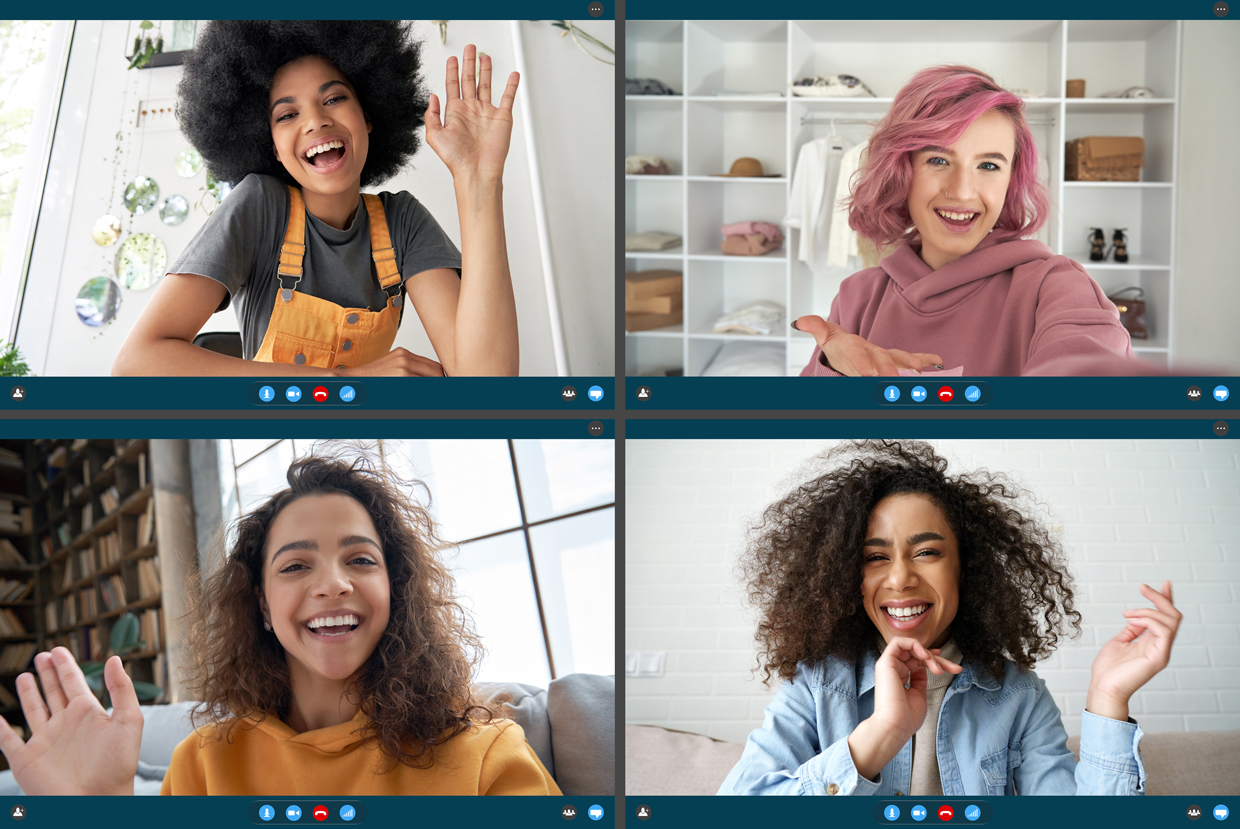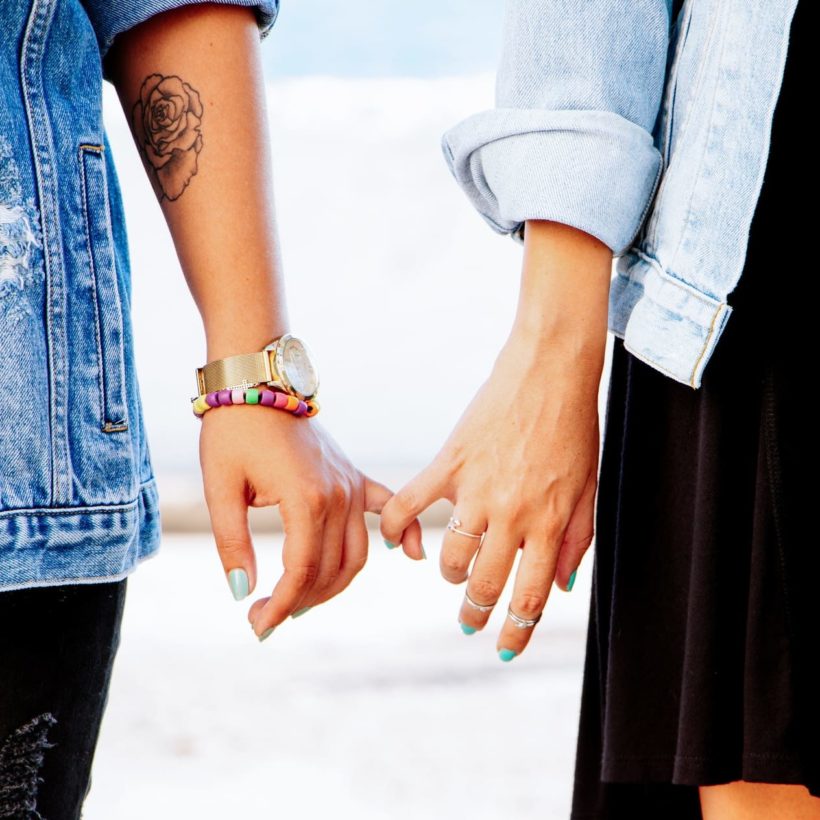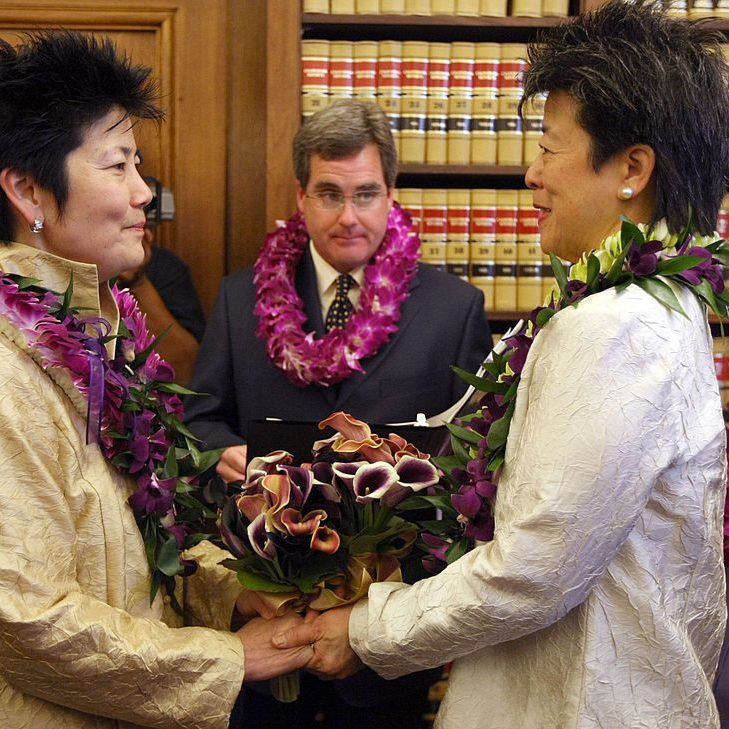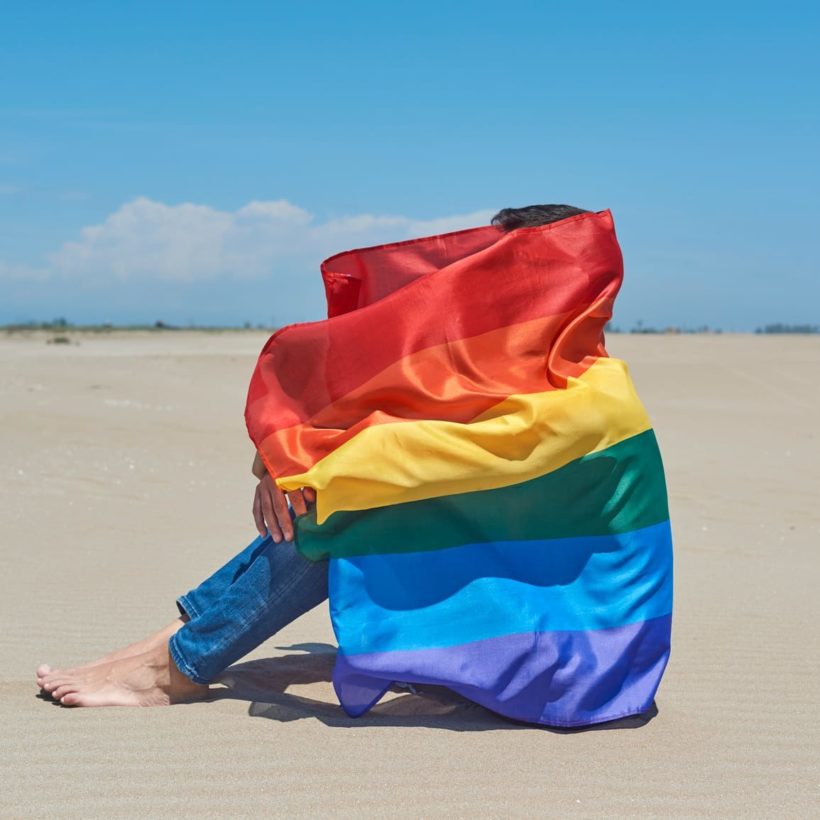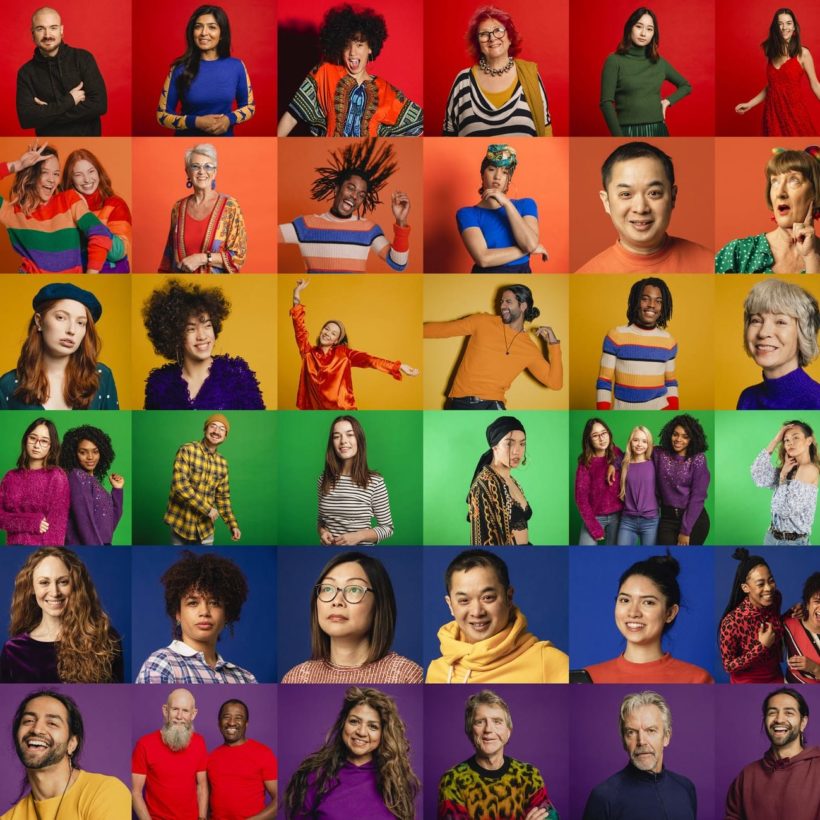Life during the pandemic has been challenging for so many of us in different aspects, but LGBTQIA+ youth have particularly faced difficulties. The 2021 Trevor Project Survey on LGBTQ Youth Mental Health showed that 70% of LGBTQ+ youth described their mental health during COVID-19 as being “poor” and nearly half of the 35,000 participants (aged 13-24) wanted counseling from a mental health professional last year, but didn’t receive that care. Enter: Charlie Health — the first-ever virtual mental health clinic for high acuity patients that’s reducing barriers to mental health care access since its launch in 2020. Through a mix of group therapy, one-on-one therapy, and community support, the brand provides a personalized intensive outpatient program for teens and young adults.
It’s more important than ever to amplify the experiences and stories of LGBTQIA+ youth. We sat down with Ley David Elliette, Ph.D., the director of LGBTQIA+ programming at Charlie Health, to discuss how we can break down the stigma of mental health care, how to be better allies and ways to create a loving, supportive environment for LGBTQIA+ youth.
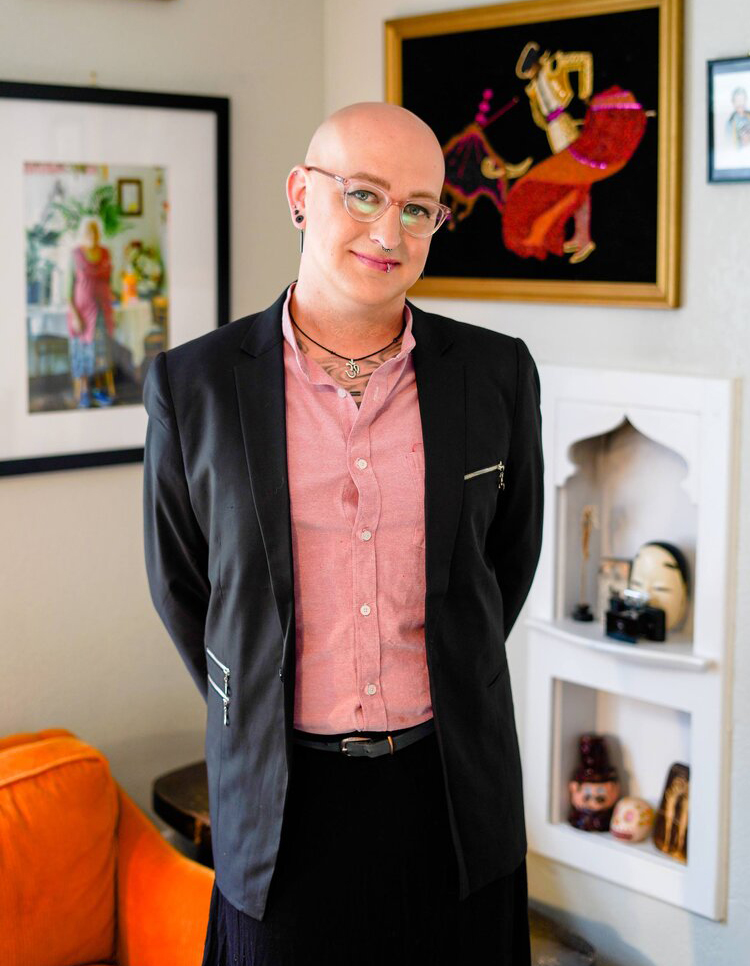
We’d love to start off with how you became a part of the Charlie Health family and how your personal experiences helped shape your role?
Ley David Elliette: I’m an academic, originally. I got my Ph.D. in philosophy in 2012, and I have maintained an active research record in professional philosophy since then. I’ve also had a mindfulness practice for about 20 years now and been really deeply involved in the yoga world. It was through my yoga training where I finally got the courage to admit to myself that I’m, in fact, trans. It empowered me to start really publicly engaging with the research, political, and academic, on trans identities and trans advocacy. As soon as I accepted that identity, I started teaching classes just for the trans community as well as queer mindfulness classes.
I started getting into philosophical counseling and working with the National Philosophical Counseling Association (NPCA) and I built a small practice there. It was through all of this that my first yoga teacher reached out to me. She said she worked for a new company called Charlie Health where they had a lot of transitioning clients and needed a yoga instructor. So, I started originally as what we now call a Contemplative Arts Therapist doing yoga mindfulness. But with my background and knowledge of the research on clinical issues related to LGBTQIA+ care, academic, scholarship and lived experience, I really bonded with the clients. I put together all of our Pride Month content last year and it organically turned into this director of LGBTQIA+ position. I left behind a tenured associate professor position to take this job, which many people [questioned]. A lot of philosophers have their heads in the clouds. But I’ve always been about “How can this help people? What can we do to actually reconnect philosophy with wellness practice?”
How is Charlie Health different from traditional mental healthcare, especially for LGBTQIA+ youth?
Elliette: Charlie Health’s focus is on intensive outpatient care which is this middle ground [in mental health care] that a lot of folks don’t always know about. There’s this idea of inpatient treatment or once a week therapist. IOP, intensive outpatient therapy, meets it in the middle where it’s intensive group therapy, which is also supplemented by family therapy and individual meetings with a primary therapist. And we do that all virtually. They’re in the comfort of their home. They’re in a safe space. They don’t have to travel to get there, so it is eliminating barriers to access. It also allows us to bring clients in need from across the country together based on their particular needs and not on their geographic location. As a result, we’re able to create much more curated groups. If we have someone coming in, it’s not like they’re only going to be doing this IOP therapy with group members who are in, say, their small town. They’re able to do it with people across the country who are seeking substance use treatment. They might want EMDR [Eye Movement Desensitization and Reprocessing therapy] for the purpose of recovering through trauma. Or, they’re transitioning and they want to work with a trans facilitator. With this virtual format and our IOP treatment modality, we’re able to really expand access and also focus on the treatment that we offer.
The way it will work for a typical client experience is they’ll have their primary therapist and a case manager with who they’ll work. The case manager oversees their whole stay at Charlie Health and manages their case, and then the primary therapist is the person that they meet for their one-on-one sessions. But then, the group part of things, clients will have nine hours of a group a week, typically three-hour nightly [time frames]. Each of those hours will typically be with a different facilitator. They might have Harley come in and do yoga for the first hour to ease them in, and then they do a processing group with Megan, and then Chad comes in to do a wind-down group, tie up loose ends of processing, review some skills, and guide them into the rest of their night. It might be that they come in and they do that real heavy processing during the first hour, and then some dialectical behavior therapy skills in the second hour, and then art or music therapy in the third hour as a way of processing and internalizing those skills.
For adolescents, do they need to have parental consent to seek care?
Elliette: I’m not aware of any of our clients right now who are coming in without parental consent as adolescents. Actually, one of the factors that correlates with successful outcomes in this kind of treatment is parental involvement. Whenever we have a client, whether that client is living with their parents or a chosen family or some other caregiver, we always encourage as much involvement from them as possible. There can be family therapy, therapy just for the family without the client, and therapy directly with the client. We also offer a free weekly parent and caregiver support group. There are a few different options there, but the one that I personally oversee every week is the support group for parents of LGBTQIA+ kids. It’s open to the public.
Now that you’ve been at Charlie Health for over a year, what have you learned about the needs of today’s kids? Has anything surprised you?
Elliette: One thing that I’ve definitely come to learn myself is that the needs of today’s kids are ever-evolving because things are rapidly changing. Social progress is exponentially moving faster than in the past — as with technology and access to technology. This affects the needs of our clients because it’s affecting how they’re interacting with the world and it’s affecting how they’re interacting with and relating to themselves in their close communities. What I see developing at Charlie Health is this attitude of leaning into that evolution and a commitment to meeting the clients where they’re at and understanding their contemporary situation. Understanding the needs of a client in rural Montana with very little wifi connections versus the needs of a client living in [a major city like] Portland or Brooklyn. The clients might be in different places. It’s a cosmopolitan approach to healthcare.
What we are doing with the team to address that is we’re also having a very, very wide range of offerings. Given that the needs of clients are different, we have therapists who specialize in DBT [Dialectical Behavioral Therapy], we have therapists who specialize in CBT [Cognitive Behavioral Therapy]. We have therapists who are coming in as art therapists, as dance therapists, as music therapists. We have our whole contemplative arts group where we have trauma-informed yoga instructors and mindfulness instructors, and a spirituality group, which is non-denominational, of course, but just exploring those kinds of deeper existential questions. Clients are getting a mix of all of this which maximizes our chance of really ensuring that their particular needs are getting met. If a client speaks up and we find out that their needs are not being met, we’re able to work with them and either put them in the groups that would better serve them or create the groups that they need, which I see happening in real time, all the time. I’m involved in those conversations twice a week: “What group do we need? What groups don’t we have that we need? Do we need a chronic pain support group? Let’s build it.”
What other benefits are there to virtual care?
Elliette: At first, there was skepticism at first about whether virtual care would really work. Then, the pandemic happened. Now, the skepticism is gone. We’re seeing that virtual care is necessary — not just beneficial, but necessary. Even in a post-COVID world, assuming we ever get there, virtual offerings allow us to have that accessible approach that’s breaking down barriers, making it affordable, and make it so that people don’t have to drive two or three hours to get therapy, which would make it so that someone couldn’t do an IOP program otherwise. They might have to either resort to inpatient or just a weekly therapist, neither of which might actually be what they need.
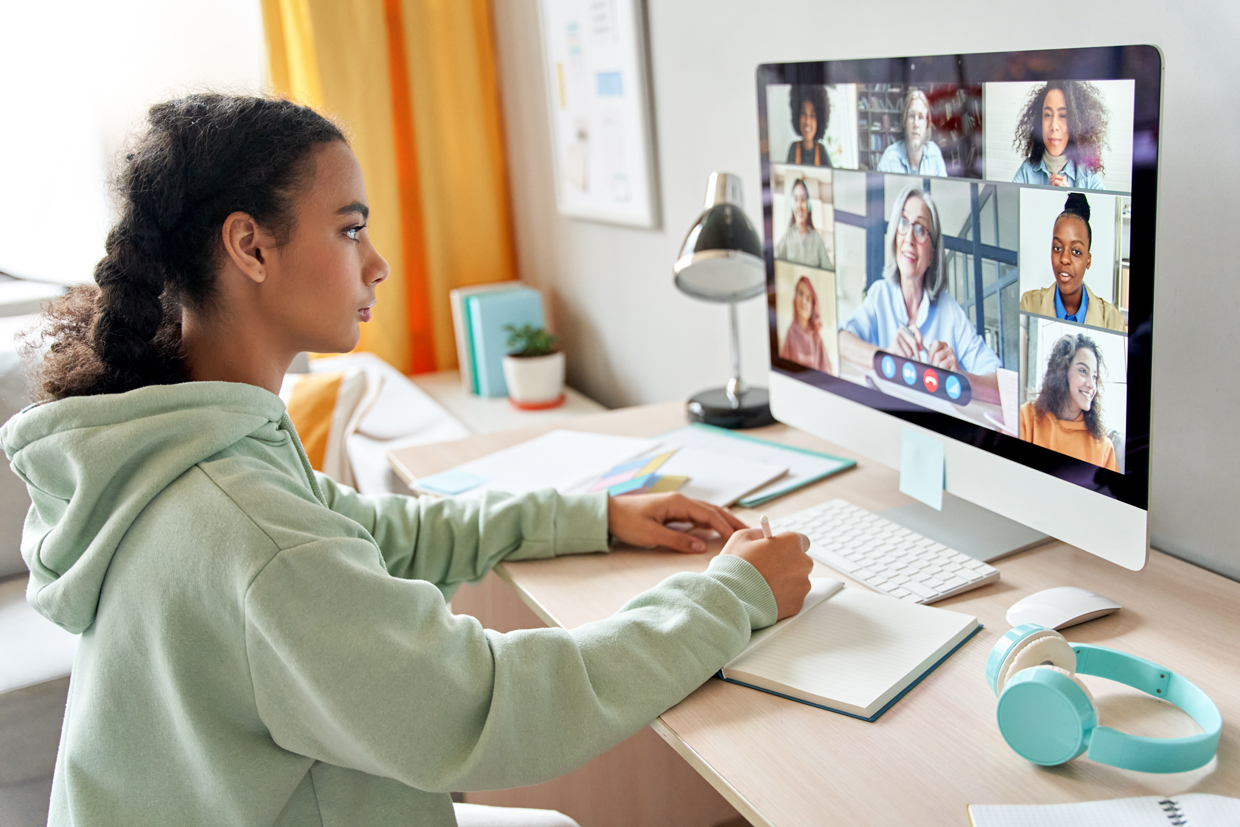
Were the certain programs you’ve introduced that were a direct response to issues you were seeing among LGBTQIA+ youth from the pandemic?
Elliette: The pandemic has, in so many obvious ways, been a collective stressor for all of us. For everyone. That is definitely something that is baked into our curriculum. We’re not necessarily talking about COVID-19 by name, but the skills that we’re working through and our general attitude of acknowledging where the clients are at and how the pandemic is affecting them. I’d say at least 70% of our clients identify as LGBTQIA+, so when we’re addressing COVID-19 for that population and the particular stressors.
Everyone knows an LGBTQIA+ person. Everyone does.
Here’s where my background as a philosopher might come out just a little bit. So much of identity, whether it be about gender or otherwise, is social and performative. When you have people going through extended lockdown, those performances get disrupted and this can cause a lot of reflection. If you spend a couple of weeks alone in your home not really going anywhere, not really getting dressed up, you might start to be like, “Well, what is gender anyway?” So, my suspicion is that the pandemic initiated a lot of serious self-reflection. Not just amongst adolescents and young adults, but everyone. It also disrupted community ties. So much of our healing and sustaining our wellbeing is dependent on our community, and that goes especially for any sort of marginalized or otherwise minoritized, community — the LGBTQIA+ community.
During the pandemic, so much of our interaction with other people was forced to be entirely intentional. We lost so much incidental contact. Making new friends spontaneously, making friends at school during study hall or in the hallway. This would have a disproportionately large effect on disrupting queer communities and taking away one of those pillars of support. Some of them don’t have any other LGBTQIA+ friends in real life. Charlie Health provides them that. We’re primarily IOP. We recognize that part of healing is a community, so when we can foster that community, we do everything we can to foster that community.
How can parents of LGBTQIA+ youth be more supportive of their children?
Elliette: The number one thing I would recommend to parents before anything else is to listen to their children. Trust their children. A lot of the vernacular and lingo is ever-evolving, so it can seem unfamiliar. If it seems unfamiliar, it can seem like a fad or a trend. It’s not. It’s just safer for people to explore. If we had the safety back then that we had now, you would’ve seen this exploration starting sooner. Listening and validating, even when you don’t understand. There’s also a good chance that the child doesn’t understand, either — they just know that something’s up. The bar sometimes seems to be raised for LGBTQIA+ kids. Having grace and listening to your kid, and understanding that everything is a phase. Childhood is a phase. Adulthood is a phase. Life is a phase. So, the worry that it’s a phase — even if it is just an exploration — is better to have your child explore and then settle with reflective confidence on who they are rather than inherit it against their will. That inquisitiveness on the parent, that space holding, that genuine active listening and validation, can literally save lives.
What are ways we can all be allies to the LGBTQIA+ community even if we don’t have kids? How can we be more informed, especially for those who are new to supporting the community in a more powerful way?
Elliette: Everyone knows an LGBTQIA+ person. Everyone does. Not everyone knows that they do. But, keep in mind that just because you think you don’t know any trans people doesn’t mean you don’t know any trans people. With that said, listening. Deeply, actively listening and listening to a lot of different voices. Seeking out the stories of trans people, of trans women, of trans men, of non-binary people, of all the people with other identities. Seeking out the stories of young people. The old guard, your elder queers. Actively listening and listening with an open heart and listening with open ears and recognizing that their stories might surprise you. They might shock you. They might confuse you. But, leaning into that as an aspect of how beautifully complex the world is rather than seeing it as a threat.
Component number two for allyship is remembering that an ally is not just a noun, it’s a verb. It’s very easy to call yourself an ally, but allyship is about showing up for the community. Allyship is about what you’re doing actively to materially support that community. I would encourage anyone who wants to be an ally to any marginalized community, but in this case, the LGBTQIA+ community, to ask, “What am I personally doing to offer tangible material support to people?”
How do you think social media has played a part for LGBTQIA+ youth?
Elliette: Social media is a double-edged sword. Social media can disrupt our relationships with other people and ourselves. It can facilitate body image self-worth issues. It can facilitate envy. It can foster anxiety and depression. These are all familiar. But, at the same time, social media, in a way that we’ve never had before, creates a sense of community and communities not bound by spaces but joined together by shared personal narratives. Your community can literally be a global community. You can find people and you can share experiences and you can learn and you can advocate and you can benefit from the advocacy of others. It can create a sense of belonging where you start to feel less like an outcast of society and more like part of the future. I think that can be so deeply grounding. The familiar psychological damage of social media notwithstanding, it is beautiful for creating connection and visibility.
If you are dealing with depression and need help, you can call the NAMI Helpline at 800-950-NAMI.
